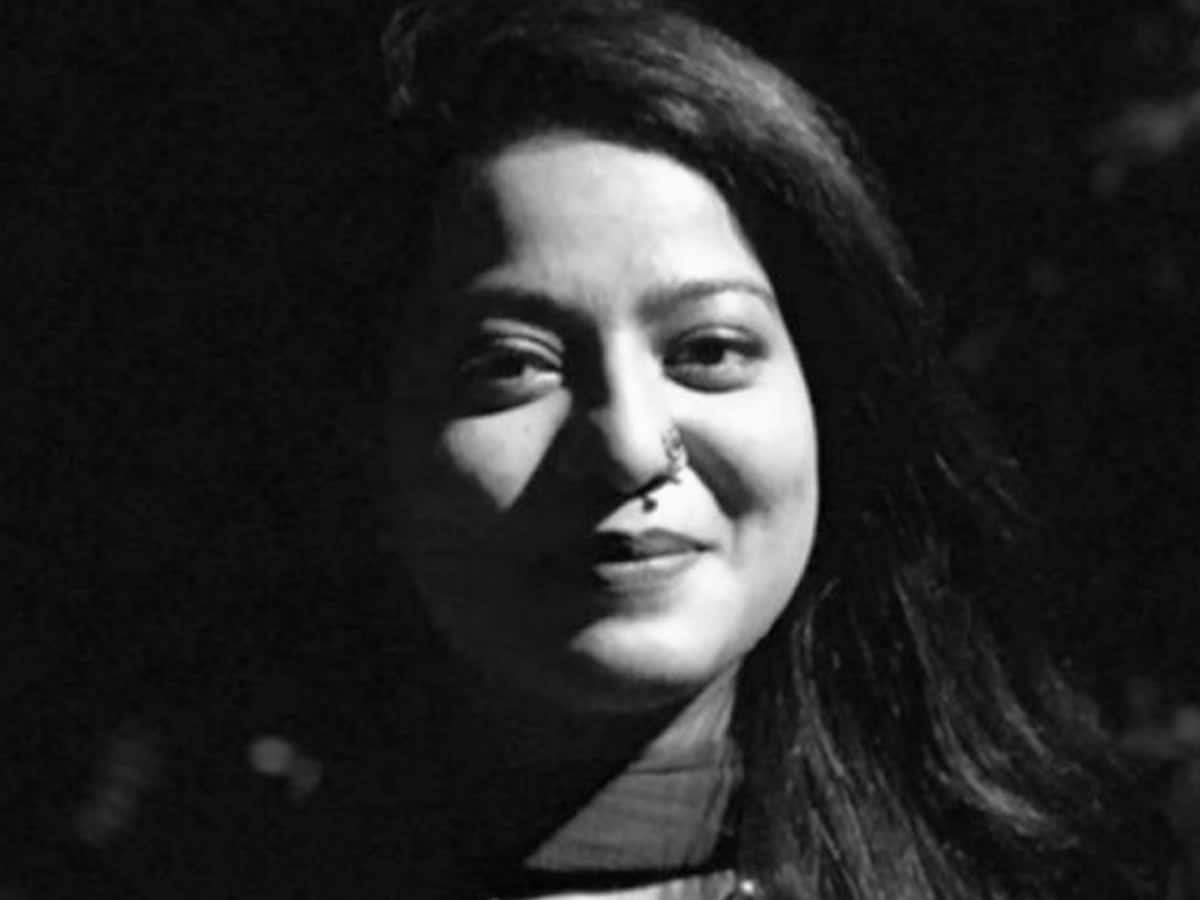Jamia Millia Islamia (JMI) research scholar and student activist Safoora Zargar was arrested in April last year on accusations of delivering an inflammatory speech at the Jaffrabad anti-CAA-NRC-NPR sit-in protest site. The Delhi Police alleged that she was among the conspirators of the North East Delhi communal violence that ensued last February and booked her under the Unlawful Activities (Prevention) Act (UAPA).
In a series of interviews with The Quint and Scroll, Safoora revealed details of her horrifying judicial custody.
The then 3-month pregnant Safoora was arrested from her home in Delhi on the afternoon of April 10. “The first thing my husband did was inform the police that I was pregnant,” said Safoora. The police however told the family that it was only a ‘routine enquiry’. She spent 3 months in judicial custody and was released last June after the Delhi high court granted her bail on humanitarian grounds.
During the first three days after her arrest, Safoora was held at different police stations in Jaffrabad as there was no special women’s cell. She was later shifted to Tihar Jail where she remained for three months. For the first 24 hours at Tihar, Safoora was placed in complete isolation in one of the special cells guarded by high walls and barbed wires. “The most difficult part of it was the isolation, the confinement,” said Safoora. “It was very scary… I thought this is the end.”
She was then sent to a different ward and was locked up there for 15 days citing Covid-19 protocol. People who came way later than she was were already moving around in the prison but she remained locked up. “When I was presented to the magistrate, I raised this issue. I kept writing applications. But I never got any response,” Safoora told Scroll.
Safoora’s solitary confinement continued for 38 days, Recounting her time in isolation, Safoora noted that she had no idea about what was going on outside. She had no access to newspapers or TV and wasn’t allowed to speak to lawyers. There was nobody to talk to or get any information from.
“I did not even know in which FIR I was arrested,” she said. She found out way later that she had been charged with UAPA. During the time of her isolation, reading the Holy Quran and offering prayers five times a day were the only activities that gave her some peace.
Safoora said that she faced severe anxiety with respect to her pregnancy, losing all hope and fearing a miscarriage. “I dreaded going to the washroom. I would panic, and my heart never beat normally,” she said. She recollected that the medical facilities in prison were not up to the mark and she wasn’t even provided essentials.
“I was wearing one pair of clothes and had another pair with me. They had taken away my slippers because heels were not allowed,” she added. Her family couldn’t send money to her for buying necessary things as the jail authorities kept citing Covid-19 protocol.
Even after the release, the later stage of her pregnancy was very difficult. She decided to talk to the press after 8 months because she is now starting to feel normal again. “I feel that I am much more relaxed now that my baby is born and healthy. I am studying and coming back to normal life. And speaking is a part of my normal life,” she added.
When the news broke that a pregnant student activist from Jamia had been arrested, social media trolls made vile attacks on Safoora and her personal life spreading rumours that she was unmarried. She however refused to reiterate that she was married noting that it “would be a disservice to all single mothers.”
She added that she didn’t want to prove her marriage or have her private life discussed. Rumours about her were spread at the Tihar jail as well. “A rumour spread in jail that we had done the riots and I have killed 53 Hindus and I am some Kashmiri terrorist,” she said. Although she contemplated asking for more security, she dropped the idea fearing more isolation.
Talking about her association with the anti-CAA-NRC-NPR protests, Safoora said that she began taking part intensively after the horrific police violence against her fellow students on the Jamia campus. She said that post the incidents of police brutality, she and her peers worked to form a common platform to protest and bring all political activists of the campus under it. Addressing the FIR against her, she said that she never even went to the Jaffrabad protest site.
“Anybody can go to a protest site and give solidarity. That shouldn’t be a problem,” said Safoora. Although there were so many like her who went to protests to show solidarity, she believes that she was made a “scapegoat to pin everything on.” She said that the culture of branding every protest as sedition needs to stop and that the current government does not understand how to handle dissent.
Safoora also addressed the arrests of fellow women activists like Nodeep Kaur and Disha Ravi in relation to the protests against the farm laws. She said that the government does not know how to deal with women with political opinions. “The easiest way they find is to charge them arbitrarily and put them behind bars and keep them there as long as they can,” she added.
Looking back at the anti-CAA protests, Safoora said that believes the anti-CAA movement is far from achieving any closure. She said that the protests exposed Islamophobia in the country and the pattern of how the government plans to deal with protestors. “It gives us more of an insight of what we may face in the future, and what we have to be prepared for,” she said.

